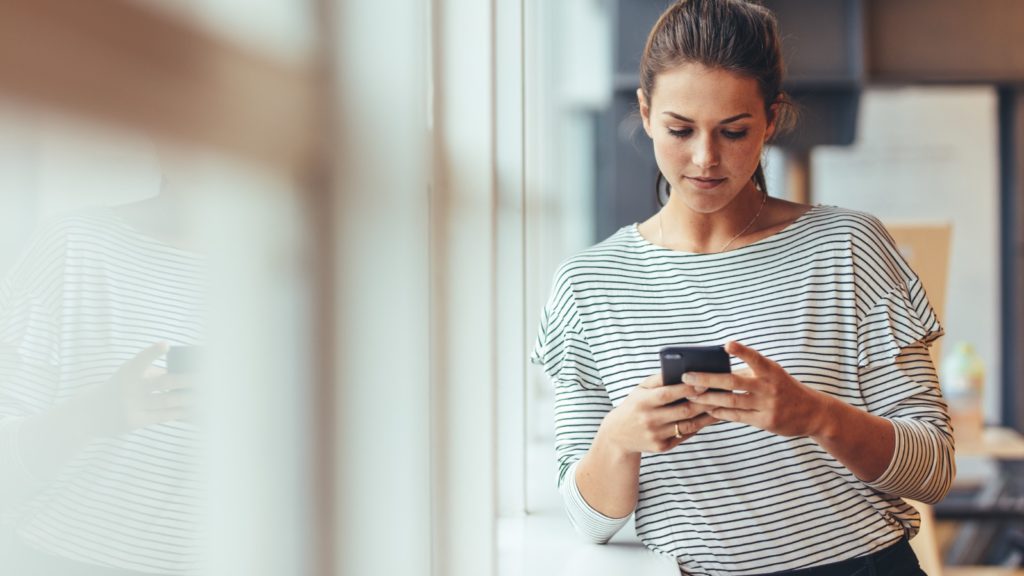
Getting good-quality sleep each night can be a challenge, even for people who don’t have sleep apnea. And if you’re one of the millions of people who do, it’s even more crucial to take the right steps to get good rest because your energy levels and general health are at stake. One surprising culprit of poor sleep? Spending time on electronic devices like your phone, laptop, TV, or tablet too close to bedtime. Keep reading to find out how turning these devices off at the proper time will greatly improve your sleep quality and overall wellness.
How Do Your Electronic Devices Affect Your Sleep?
Blue light is a type of light emitted from the screens of your devices, although the main source is actually the sun. As you’re naturally exposed to blue light during daytime hours, your ability to produce melatonin (a hormone that helps you fall asleep) is disrupted. This signals your brain to wake up.
While that’s certainly helpful during the day, it has the opposite effect at night because it makes it difficult for you to fallasleep and stay asleep. For someone with sleep apnea who is already struggling to get the rest they need, this only makes things worse.
How Can You Minimize the Impact of Blue Light?
The most important thing you can do is simply turn off your devices at least one hour before bed. It’s also helpful to switch to low lighting in your house, as bright lights in general trick your brain into thinking it’s daytime and prevent the melatonin production you need for good sleep.
Instead of screen time, read a book or magazine, listen to music or a podcast, or do an activity like light cleaning, baking, writing in your journal, putting a puzzle together, etc.
If there are evenings where you simply can’t avoid screen time, you can also buy inexpensive orange-tinted glasses that cancel out blue light and begin wearing them several hours before bed. While not as ideal as simply turning off your devices altogether, these glasses will make a difference.
The Importance of Treating Sleep Apnea
Sleep apnea and poor sleep quality have been shown to increase the risk of heart disease, depression, weight gain, high blood pressure, diabetes, and more. That’s why, in addition to reducing the effects of blue light, effective sleep apnea treatment is crucial.
Today, oral appliance therapy makes treating mild to moderate sleep apnea easier than ever. This alternative to a CPAP machine shifts the position of your lower jaw to keep your airway open while you sleep and is much easier to tolerate.
When you combine treatment with good habits like turning off your devices at least an hour before bed, you’ll find relief from sleep apnea and greatly improve your overall quality of life.
About the Author
Dr. Sonia Dilolli is a family dentist who understands how much sleep apnea affects her patients’ well-being. In addition to providing oral appliance therapy, she also educates her patients about how screen time and other lifestyle choices affect their sleep quality. If you have any questions about sleep apnea, she can be reached via her website.
